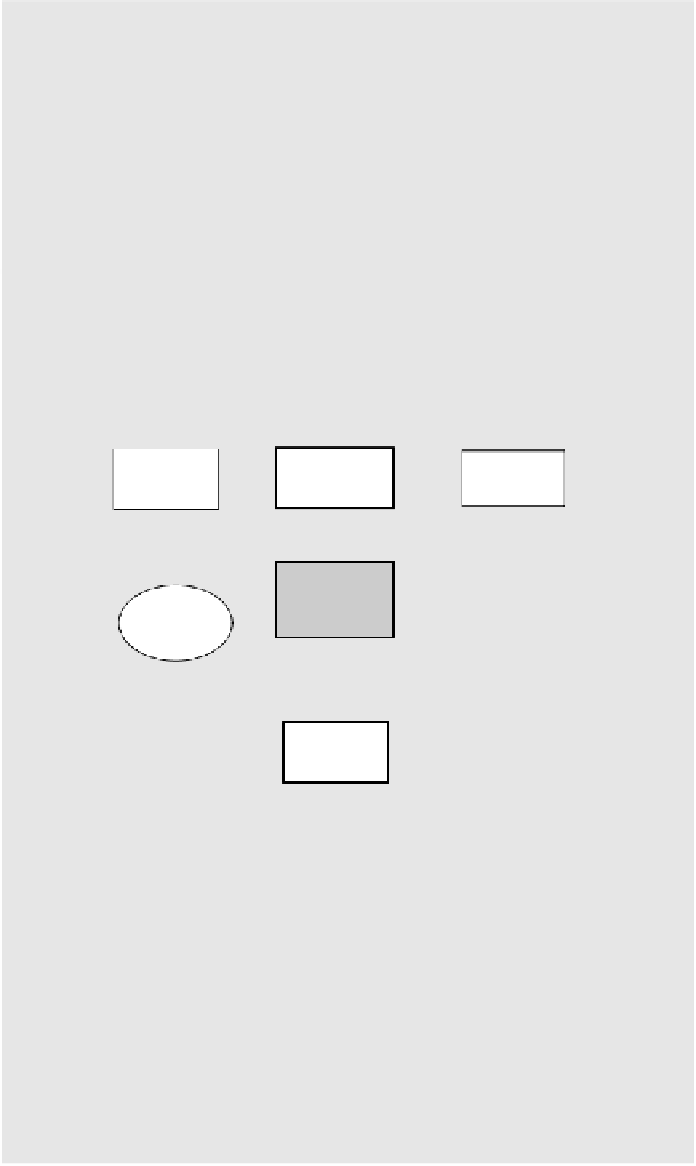Environmental Engineering Reference
In-Depth Information
Box 6.3
A community-based hunting association in Cameroon.
The Mokoko Wildlife Management Association (MWMA) was formed in 1997
by a group of communities, with facilitation from the Mount Cameroon Project
(
http://www.mcbcclimbe.org/mcp_intro.shtml).
The Association was legally
recognised by the Government of Cameroon as authorised to manage wildlife
within their designated area, and to hunt for personal consumption. This
included making detailed rules for MWMA members, and fining violators. They
developed a scheme such that hunters were allocated quotas in the form of metal
Illegal
kills
Wildlife
population
Net price/
kill
Legal
kills
Fines
Revenues
Sustainability
Quotas
Hunting
control
Wildlife
monitoring
MWMA
Admin
Costs
Fig. 6.5
A simplified representation of the financial position of the MWMA.
Improved revenues can come from an increase in the number of bushmeat
kills, the price/kill net of hunting costs (assuming MWMA takes a cut from
the sale price of each animal killed rather than charging hunters per tag), and
the number and level of fines. The number of fines and the number of animals
killed legally and illegally depend partly on the effort expended in hunting
control, which is the main variable cost to MWMA. The driving external
factors, which are influenced but not fully determined by hunting control, are
the size of the wildlife population and illegal hunting effort. Ovals represent
key decisions: the amount invested in hunting control vs monitoring by the
Association, and the amount of illegal hunting by poachers; rectangles
represent the consequence of decisions or factors out of the Association's
control. Adapted from Olsen
et al
. (2001).






















